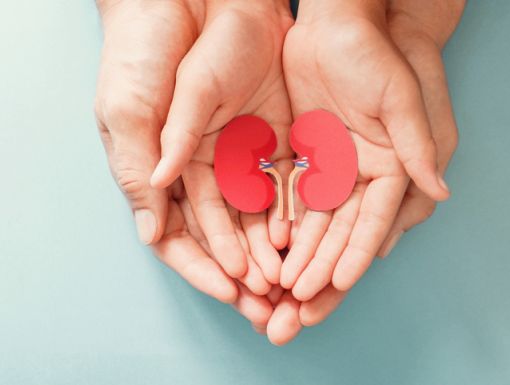
What Are the Requirements for Organ Donation?
More than 107,000 men, women and children are on the national transplant waiting list. Every 10 minutes a name is added to that waiting list, and it is reported that 17 people die each day waiting for a transplant. These patients rely on people signing up to be an organ donor. Each registered donor can save up to nine lives! While 90% of adults in the United States say they support organ donation, only 60% are signed up on a registry. This is partially because of misconceptions and inaccuracies about organ donation and who is eligible to donate. Below are some rules and requirements to clear up some of those misconceptions.
At what age can someone become an organ donor?
People of all ages should consider themselves potential donors. Newborns and senior citizens in their 90s have been organ donors. More important than your age is the health of your organs. The transplant team will decide at the time of death if donation is possible. If you are signing up to become a living organ donor, you must be at least 18 years old at all transplant centers and some centers require a donor to be 21 or older. Here are two things to keep in mind when signing up to be an organ donor:
- All people over the age of 18 can register themselves to be an organ, eye or tissue donor. When you sign up to be a donor, you can select what you are willing to donate. You can also change your status at any time.
- All people under the age of 18 can still register to be organ donors. However, their parents or legal guardian(s) will have the final say if the occasion arises for organ donation before the age of 18.
What is living organ donation?
Living organ donation occurs when a living person voluntarily donates an organ or a part of an organ to someone in need of a transplant. Unlike deceased donation, which happens after death, living donors provide organs or tissues while they are still alive. This option is especially important for certain types of transplants, like kidneys and livers, where individuals can donate either one of their paired organs or a portion of an organ they can survive without.
Who can be a living organ donor?
To be considered for living donation, a donor must meet specific medical and psychological criteria. Generally, living donors are between 18 and 60 years old, in excellent physical and mental health and free of medical conditions that could complicate the donation process, such as uncontrolled high blood pressure or chronic infections. Donors are carefully evaluated to ensure their safety and ability to live a healthy life post-donation. Importantly, living donors do not need to be a blood relative of the recipient. They can be a friend, a coworker, or even a compassionate stranger willing to change someone's life.
What is the process for becoming a living organ donor?
Living donation is a deeply personal decision and involves several steps, each designed to protect the donor's health and ensure a successful match for the recipient. The process typically begins with contacting a transplant center and expressing interest in donation. Here’s an overview of the steps involved:
- Initial screening: The transplant team will conduct an initial interview and review the potential donor’s medical history to determine if they are a viable candidate.
- Evaluation: Donors undergo extensive medical testing, including lab work, imaging studies, and physical exams, to evaluate their overall health and compatibility with the recipient. Psychological assessments are also conducted to ensure the donor is emotionally ready for the process.
- Matching compatibility: Blood and tissue typing are used to determine if the donor’s organ is a suitable match for the recipient. While blood type compatibility is helpful, advancements in technology and paired donation programs have made it possible for nearly any willing donor to be matched through kidney exchange programs.
- Surgical procedure: Once approved, the donor and recipient will undergo surgery. Most living donor procedures are minimally invasive, and recovery times for donors have improved significantly due to medical advancements.
- Follow-up care: After donation, the donor will receive comprehensive post-operative care to ensure their long-term health and well-being.
Does my ethnicity or race matter when donating organs?
This answer is no. All people are encouraged to be organ donors no matter their race or ethnicity!
Does medical history prevent you from being an organ donor?
Even with an illness or a health condition, you may be able to donate your organs and/or tissue upon death. At the time of death, the appropriate medical professionals will review your medical and social histories to determine whether you can be a donor. With recent advances in transplantation, more people than ever before can be donors. It's best to tell your family your wishes and sign up to be an organ and tissue donor on your driver's license or an official donor document.
If you are signing up to become a living organ donor, it is important to know there are some medical conditions that could prevent you from being a living donor. Some of these medical conditions are uncontrolled high blood pressure, diabetes, cancer, hepatitis, infections or HIV.
Can non-United States citizens donate (or receive) organs?
Yes, non-United States citizens who are currently living in the United States can both donate and receive organs. Organs are given to people based on medical need, not citizenship.
How do I sign up to be an organ donor?
It’s easy for you to register to be an organ donor! You can register online at ochsner.org/save9. You can also register at your local Office of Motor Vehicles when you are renewing your driver’s license or state identification card.
If I have my organ donation status on my driver’s license, is that enough?
In addition to listing your status on your driver’s license, we encourage you to make your wishes known with your family. If you signed up as a deceased donor in your state registry and you are over 18, then you have legally authorized your donation, and no one can overrule your consent. If you are under 18, your parents or legal guardian must authorize donation. When your family knows where you stand, they will want to make sure they carry out your wishes.
The bottom line is all people should consider themselves potential organ and tissue donors—regardless of age, health, race or ethnicity.


